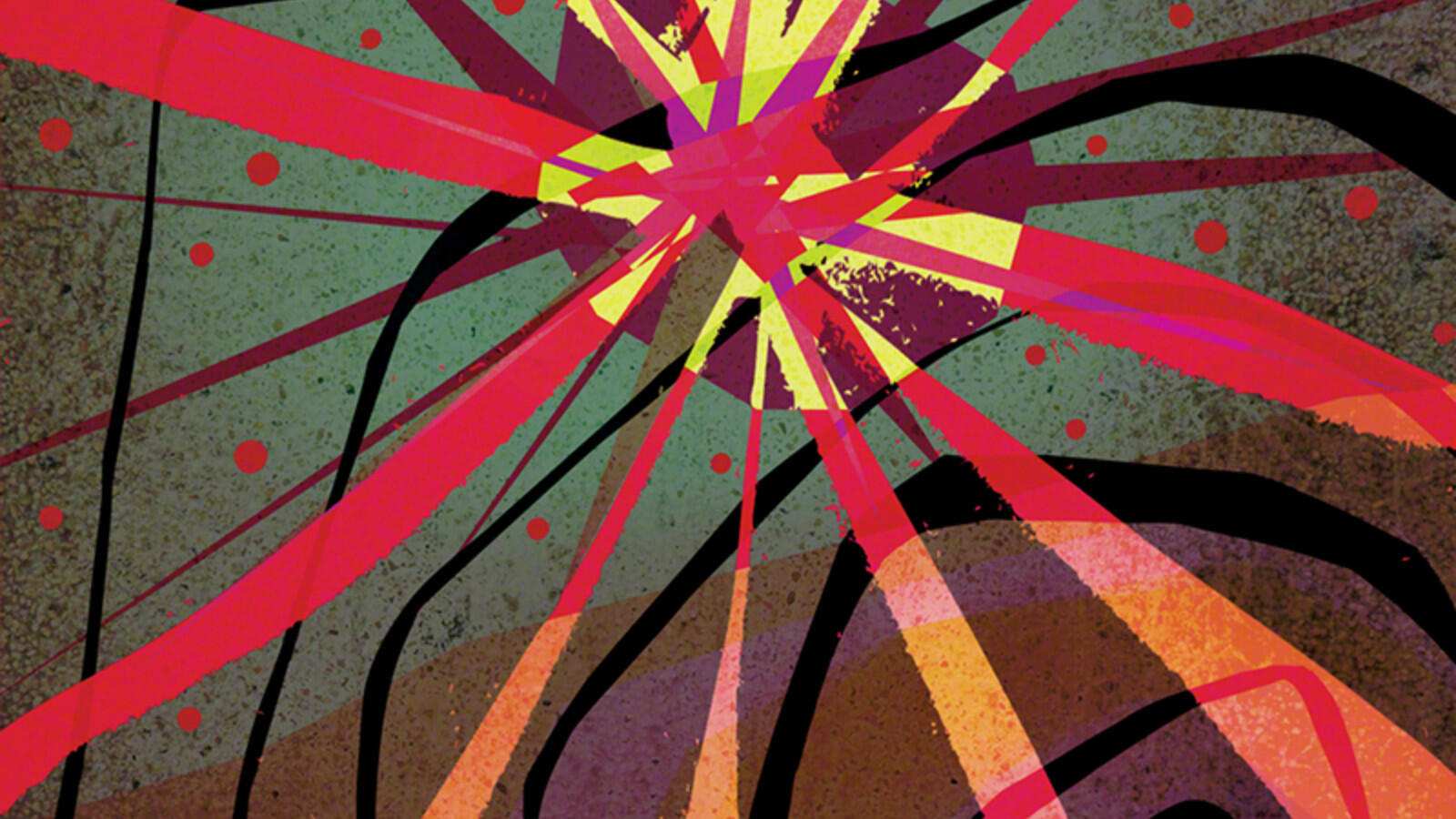The miracle of the splitting of the Red Sea in Parashat Beshalach is replete with creation imagery, mimicking the creation story from the Book of Genesis.
In the first chapters of Genesis we learn that the world was chaotic, covered in darkness, and God hovered above the surface of the waters. Then God gathered the waters and dry land appeared: “And God said: ‘Let the waters under the heaven be gathered together unto one place, and let the dry land appear.’ And it was so.” (Genesis 1:9)
In Parashat Beshalach, the verse also describes chaos and darkness with God’s presence hovering above. Then the waters are split, and dry land is revealed:
Thus there was the cloud with the darkness, and it cast a spell upon the night, so that the one could not come near the other all through the night. Then Moses held out his arm over the sea and the Lord drove back the sea with a strong east wind all that night, and turned the sea into dry ground. And the waters were split.” Exodus 14:20-21
With your help, My Jewish Learning can provide endless opportunities for learning, connection and discovery.
The gathering of the waters in Genesis culminated in God creating living beings, allowing life to flourish on Earth. On the shores of the Red Sea, the splitting of the waters culminated with the creation of a nation, the children of Israel. God reenacts creation in the Exodus story with the Jewish people as the central characters. From this point on, the Jews are called Ivrim, a unified people, a nation to which God has given birth.
The Midrash connects these two creation stories, explaining that the splitting of the sea was a stipulation of the original creation story. In Exodus 14:27, the verse reads: “Moses held out his arm over the sea, and at daybreak the sea returned to its original strength [l’aytano], and the Egyptians fled at its approach.” The Midrash explains that l’aytano should not be read as “to its original strength,” but rather as tanai (“stipulation”). In other words, the waters returned to the original stipulation that was made at creation. That is to say, during the creation of the world God stipulated that the very waters that God drew together would split once again so that God’s nation could be born.
But there is a distinct difference between the creation in Genesis and the re-creation at the Red Sea. It can be argued that there was something lacking in the original creation story. Shortly after the world was created, God destroyed almost all living creatures in the flood and began the creative process again with Noah and his family. The creation at the sea, however, is a creation that endured, a final act of divine creation. What was different about the creation of the Jewish people?
The creation of the world was marked by the words vayomer elokim, “and God said.” God said “let there be light.” God said “let the waters separate.” And so on. However, in the Exodus story, at the moment the Jewish people reached the other side, there was no prose, there was song.
Exodus 15:1 tells us: “Then Moses and the children of Israel sang this song to God … I shall sing to God for God is exalted.”
It is through the medium of song that we are bidden to recognize and celebrate God as the ultimate creator of the world. The Hadic master known as the Sefat Emet explains that the word “then” comes to teach us that Israel had always longed to sing God’s praises, for Israel’s essence is to give testimony to God’s power. But this song could not be sung while the Jewish people were enslaved. It was only after the people were freed that they were able to recognize God as the God of creation at the sea. Then, they could sing.
Creation is sustained through song. Each morning as part of our daily prayer we sing these same verses of song that the Israelites sang at the sea. We are bidden each morning to bring song into our lives. In this way, on each day anew, we must sing out and praise the God of creation.
Read this Torah portion, Exodus 13:17 – 17:16 on Sefaria
You May Also Like:
Sign up for our “Guide to Torah Study” email series and we’ll guide you through everything you need to know, from explanations of the major texts to commentaries to learning methods and more.
Subscribe to A Daily Dose of Talmud: Daf Yomi for Everyone — every day, you’ll receive an email that offers an insight from each page of the current tractate of the Talmud. Join us!
About the Author: Rabba Sara Hurwitz is the president and co-founder of Maharat, the first institution to ordain Orthodox women as clergy. She also serves on the rabbinic staff at the Hebrew Institute of Riverdale. She has been named one of Jewish Week’s 36 Under 36, one of the Forward50 most influential Jewish leaders, and one of Newsweek’s 50 most influential rabbis.



